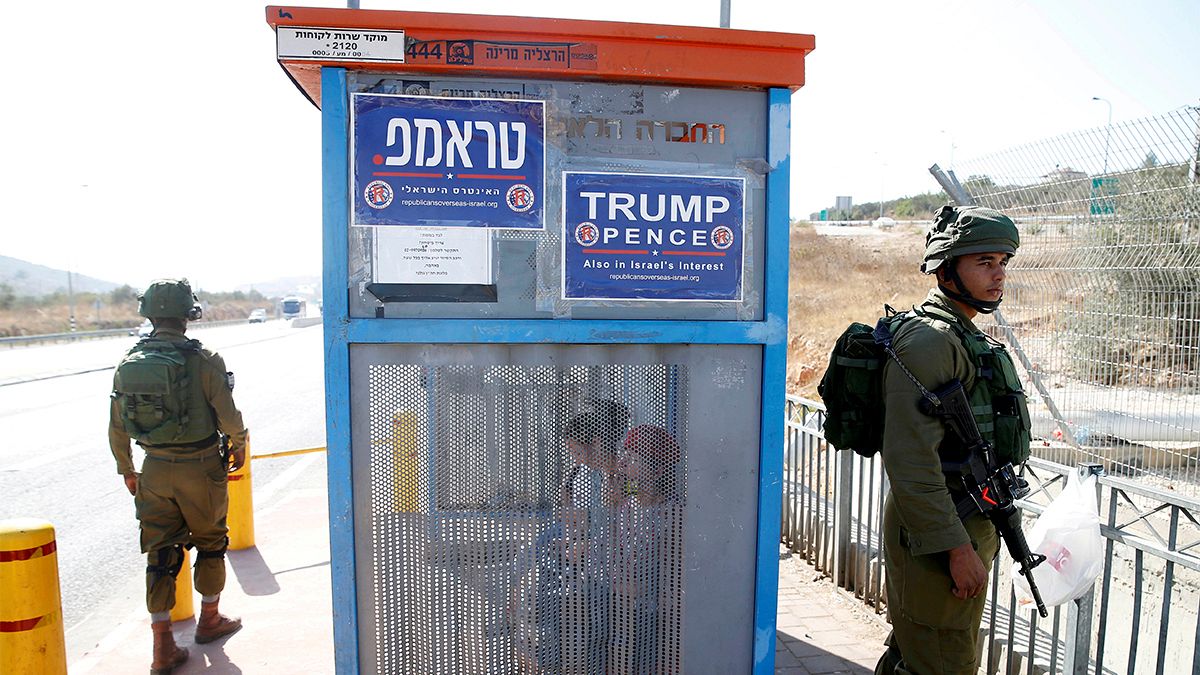Donald Trump’s foreign policy may seem like a great leap into the dark for the Middle East. His campaign speeches on the region have been blurred, brutal and contradictory.
His positions on the Syrian war, the armed conflict in Yemen, the Iranian nuclear deal, the fight against terrorism and the Arab-Israeli conflict – on what is possibly the most chaotic region of the globe – have elicited strong reactions.
The end of the Barack Obama era
His electoral success was warmly welcomed by right wing and the extreme right in Israel. Benjamin Netanyahu hailed his victory calling him a true friend of Israel, adding that he was keen to work with the billionaire president to ensure security, stability and peace in the Middle Eastern state and the region. While Israel’s Education Minister Naftali Bennett said Trump’s election signed the deathnell on the idea of creating a Palestinian state co-existing with Israel. Online daily newspaper The Times of Israel noted that Trump plans to “invest heavily in defending Israel and to support initiatives that could make the welfare of the Jewish state one of his primary objectives”, despite some isolationist comments during his campaign.
Trump’s presidency marks the end of eight years of difficult relations with Barack Obama.
Despite a period of rapprochement between the US Democrats and Israel, Tel Aviv is looking forward to a warming of relations with the new administration.
The Palestinian authorities already have concerns. They have called on the president-elect to work for the establishment of a Palestinian state based on the 1967 borders, co-existing with Israel. They also warned of the risks involved in neglecting the Palestinian question.
Iran: The nuclear agreement must be respected
During his electoral campaign Trump fiercly criticised the recently-agreed nuclear agreement with Iran, vowing to rip up the accord when he took office. Conservatives in Tehran have accused President Hassan Rouhani of getting a raw deal for Iran. Many feel the agrement did not bring significant results to the economy despite the lifting of internatinal sanctions.
Western investors are still reluctant to enter into the Iranian market because of the continued US unilateral embargoes. There are fears the situation could worsen with a Republican president. Rouhani and his foreign minister
Mohammad Javad Zarif have said the future president could not unpick the agreement as it was endorsed by the United Nations.
#Iran says #PresidentTrump should stay committed to the #nuclear deal #OPEC#oil#Elections2016#sanctions#OOTThttps://t.co/b00SPPLifdpic.twitter.com/HJlRHLnXsI
— Christopher Johnson (@chris1reuters) November 9, 2016
However a rapprochement between the United States of Trump and Russia’s Vladmir Putin could benefit the Islamic Republic.
Iran and Russia share a common vision on the situation in Syria, in the fight against Sunni extremism and on defence in the region.
With regard to the rivalry between Riyadh and Teheran, an isolationist stance by Trump could favour Iran, which has military and economic independence from Saudi Arabia and her regional allies.
A surprise for Syria’s Bashar al-Assad
Reactions to a Trump victory were mixed in Syria. His triumph was welcomed as a “great surprise” in Damascus by Waddah Abed Rabbo, director of the Al Watan newspaper, which is close to the regime of President Bashar al-Assad. Obama’s position on the Syrian crisis has been criticised by the two camps clashing in this conflict.
Opponents have criticised the “inaction” of the Democratic administration, while the regime and its allies have accused Obama of backing rebels who were not necessarily moderate.
The rivalry between Tehran and Riyadh
King Salman of Saudi Arabia wished Trump “success in his mission to achieve security and stability in the Middle East and around the world”. While Abdel Fattah al-Sissi, president of Egypt, the most populous country in the Middle East, called for “more cooperation and coordination” with Washington, hoping that the Trump administration will bring “a new start “.
Le Moyen-Orient en crise appelle Trump à s'engager https://t.co/ISyZYSbr7e#Election2016#AFPpic.twitter.com/AvG4vvQOAO
— AFP USA (@AFPusa) November 9, 2016
Saudi Arabia is already directly involved in the battlefield in Yemen, where armed Yemeni groups raid the border posts of the Kingdom.
This conflict with the poorest nation in the Middle Easts reflects Riyadh’s attempt to imposes its hegemony over the region.
The “interim” participation of Tehran and Riyadh is not limited to the borders of the Middle East. The influence of the two capitals is felt as far afield as Nigeria, in a conflict between Shias and the Salafist community.
The petromonarchies of the Persian Gulf have accused the Obama administration of reinforcing he Shia “superpower” with a regional policy that favours Syria, Yemen and Lebanon.
Recently, Saudi Arabia, leader of the Arab countries of the region, cut off its oil subsidy to Egypt. An opportunity that Tehran will no doubt seize by launching negotiations with the authorities in Cairo, despite the rupture of diplomatic relations for three decades.
Isolationism or Interventionism? All the leaders, but also the political actors of the Middle East, are eagerly awaiting to see how Trump’s foreign policy will pan out.
By the 20th of January, anxiety and hope will reign in these territories, which have been prey to a permanent “chaos”.
